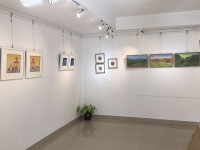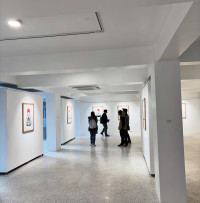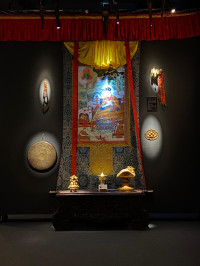Arts
I want my life to have the same freedom as my brushstrokes
After being bullied at school and feeling lost in the corporate world, Anna Dhakal found her true calling in painting.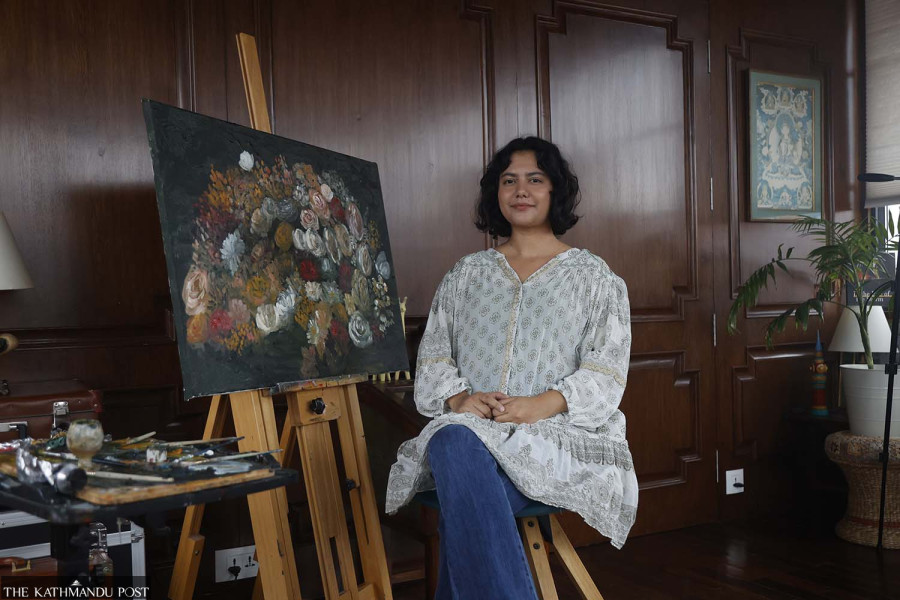
Sanskriti Pokharel
I stood outside a beautiful home, unsure if I had the correct address. A moment later, artist Anna Dhakal stepped out, her warm smile assuring me I was in the right place. As she welcomed me, entering the living room felt like stepping into an art lover’s paradise.
The walls carried paintings from both the Eastern and Western worlds, while large windows opened to a view of flowers and a garden. Natural light streamed in, and beneath the windows, a wall featured a small surprise: a mural of little houses and trees, proof that Dhakal’s creativity extends beyond canvas.
When I asked Dhakal how she would like to introduce herself, she paused, unable to put it into words. Her husband, sitting nearby, gently stepped in. “She is a person guided by inner impulse. Sometimes she paints through the whole night, without sleep. Other times, she may not touch a brush for a week. Her art is expression, driven by passion.”
Dhakal herself admits, “I cannot express everything through words. Painting gives me a language of my own.”
Dhakal had been drawn to colours since childhood. Her father often brought her paints, and she spent hours creating. However, school did not give her the freedom to grow as an artist. “I could not focus on studies. I was only interested in creative work,” she recalls. The rigid system, where art was never prioritised, discouraged her, and she eventually gave up painting.
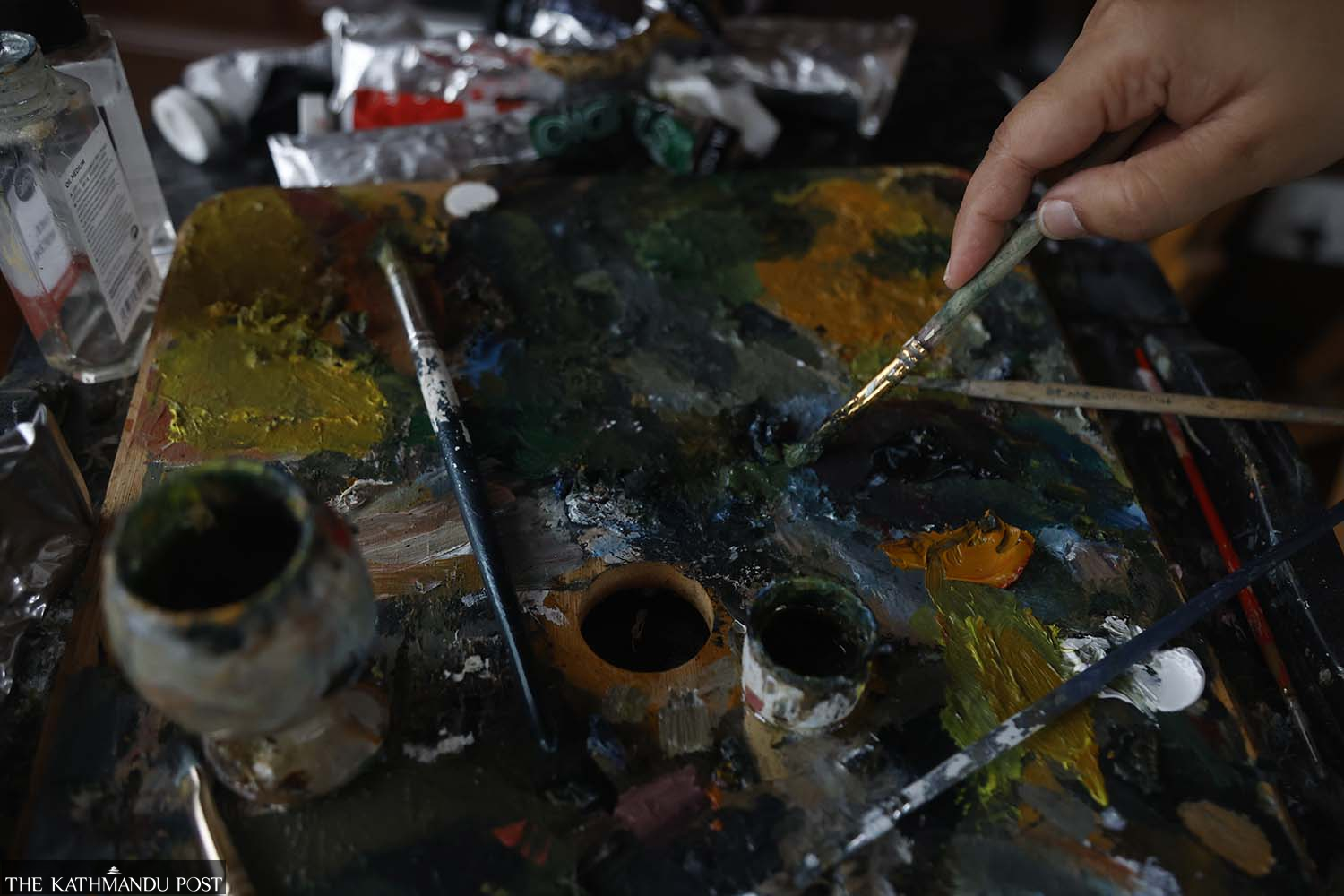
Years later, during the Covid-19 lockdown, she picked up the brush again. Without any formal training, she started experimenting. “If I have colours, a canvas, and a brush, I just begin. At first, I copied works of other artists to practice. Slowly, I learned through trial and error.”
For a long time, Dhakal feared sharing her work. “What if people criticised me, and I stopped painting altogether?” she used to wonder. But her younger sibling encouraged her to post her process on TikTok during lockdown. She was hesitant at first, but her videos quickly went viral. Encouraging messages from followers across the world gave her courage.
Oil painting, usually considered difficult, came naturally to her. She mastered shading and depth on her own.
Dhakal describes painting as her easiest language, the one thing that feels natural to her. “There are artists who paint for the market and business. But there are also artists like me, who paint with emotions, not trends.”
Last year, she tried joining an art class, but quit after two weeks. “I felt lost. My own soul teaches me to paint. I couldn’t learn there,” she says.
Her love for painting is also rooted in her childhood struggles. She was bullied in school, which affected her confidence. “I was very sensitive. I liked being alone, and I found comfort in nature. That’s probably why nature became the subject of my art.”
She once worked at a bank after completing an MBA, but the crowded environment drained her. “I always prayed for work that allowed me to stay at home. I never thought it would be painting, but it happened, and I am ever grateful.”
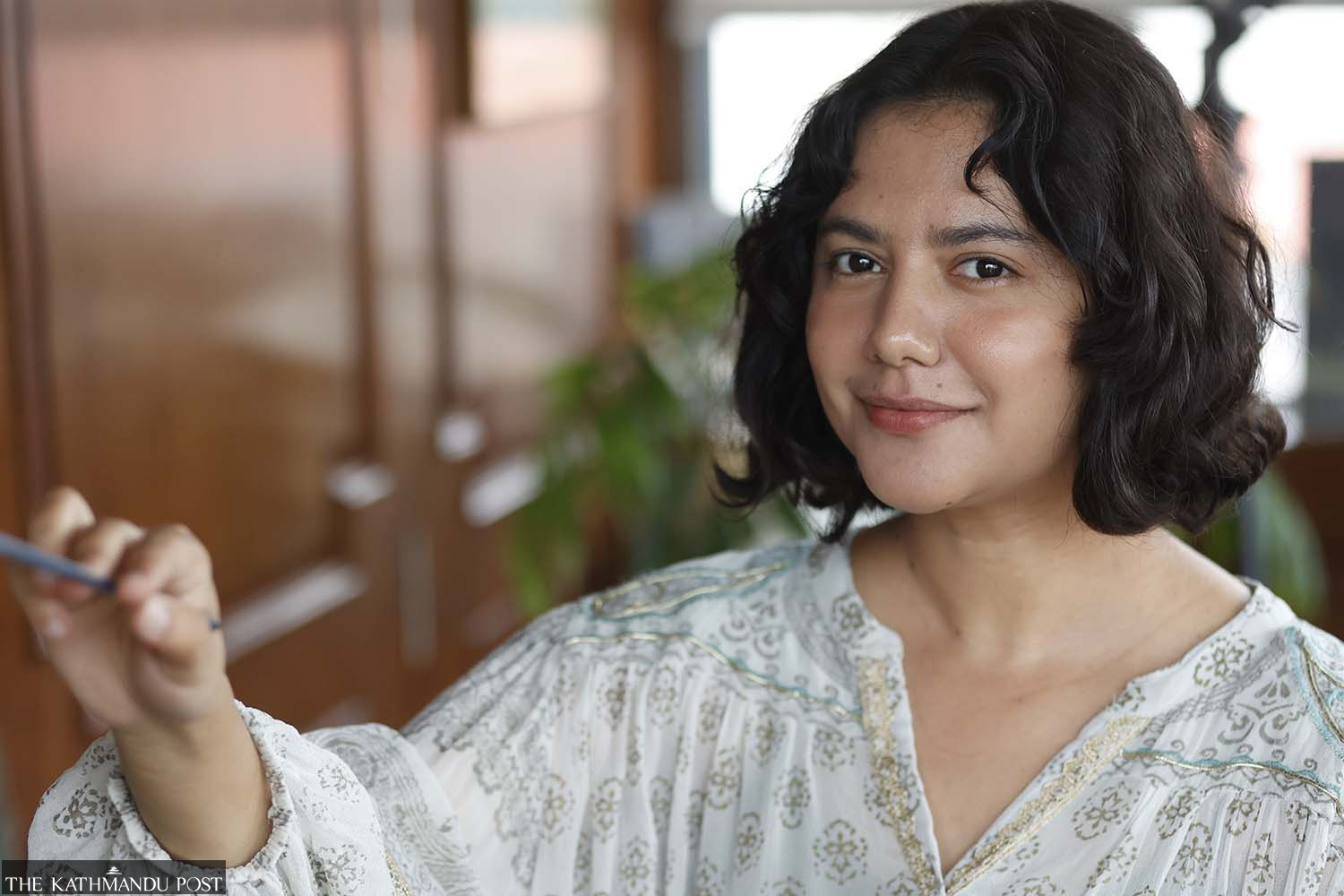
Portraits never attracted her. “Whenever I try painting people, I throw it away. Maybe it’s my fear of people that was derived from childhood. Being a victim of bullying developed that fear in me. But with nature, everything flows naturally. My soul guides my hands.” Flowers, landscapes, misty hills, and traditional homes fill her canvases.
On long drives, Dhakal often stores scenes in her memory: a foggy monsoon morning, a small village house, a field of flowers. These later find their way into her canvas. “Painting has no rules. It is free, and I can paint however I like,” she says.
Dhakal admires Samundra Man Singh Shrestha, known for his oil-based thangka paintings. She dreams of reaching such mastery one day. Impressionism also appeals to her. She likes leaving brushstrokes visible, blending them with touches of realism. “We humans are imperfect, so our works should also carry imperfections,” she says.
She feels a kinship with Vincent van Gogh, who painted solitude and sadness. “Artists are empathetic. They carry not only their own sadness, but also that of others. For me, painting is a way to transform that sadness into beauty.” Even though she sees unfairness in the world such as wars, suffering, inequality, her paintings always highlight the bright side of nature.
When she is not painting, Dhakal tends to her garden. “Gardening is meditative. It gives me the same peace as painting.” Books, too, inspire her. She has always loved philosophy and novels such as ‘Sophie’s World’, and ‘Metamorphosis’. “Books are like paintings, but with words,” she says.
Recently, she also sold one of her paintings. Before that, she rarely sold her artworks. It was sold for Rs2 million. Yet, she is clear about one thing: “I need freedom. I cannot work well if someone asks me to paint an order. I must paint what comes naturally.”
Dhakal has created nearly a thousand paintings, many stored rolled up in a safe space to prevent filling the house if displayed on canvas. “We are meant to create. I cannot imagine doing anything other than painting,” she says.
To those afraid to follow their passion, Dhakal has simple advice: “Sit quietly and pray with the universe. That is what I did during my tough times, and I still do, and it brought me here.”




 17.12°C Kathmandu
17.12°C Kathmandu

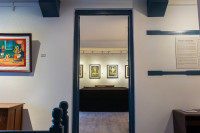
%20(1).jpg&w=200&height=120)
